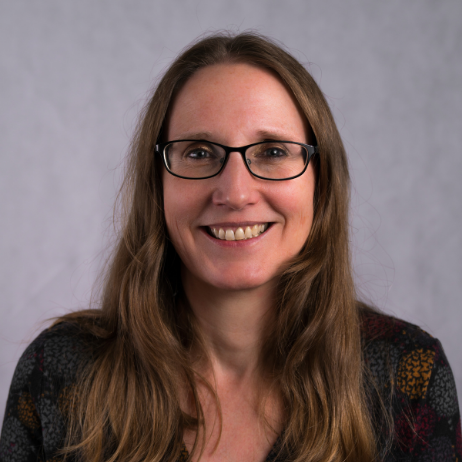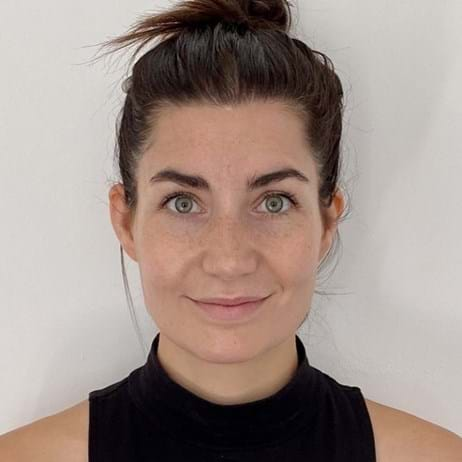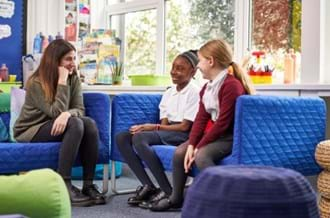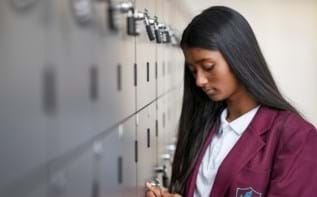Reflecting on an unprecedented term
Reflecting on an unprecedented term

Professor Tamsin Ford
Professor of Child and Adolescent Psychiatry at the University of Cambridge - Tamsin is Research Advisor at Place2Be. She is an internationally renowned Child Psychiatric Epidemiologist who researches the organisation, delivery, and effectiveness of services and interventions for children and young people’s mental health.

Lauren Cross
PhD student at the University of Cambridge - Formerly a qualified teacher, Lauren is currently undertaking a PhD at the University of Cambridge (MRC Epidemiology Unit). Lauren’s PhD explores who engages in school-based health prevention research and seeks to identify opportunities for inclusive participation.
Guest Place2Be blogger Lauren Cross, and Professor Tamsin Ford of the University of Cambridge, and Research Chair at Place2Be, reflect on an unprecedented term and the mental health of children and young people.
This week many of us are breathing a sigh of relief as we creep towards the end of an academic term like no other and look forward to some well-earned rest over the holidays.
In schools, it has been a term characterised by uncertainty, adaptation, and virtual reincarnations of parents’ evenings, open days, school concerts and everything in between. In many ways, the Autumn term has felt incredibly long, and yet somehow it feels as if the end of term has come around quickly.
Supporting children and young people during this time has brought about many challenges. This includes juggling both online and in-person education as learning bubbles move in-and-out of isolation, the transformation of teaching strategies, and helping students to feel safe within a changing school environment. We still have a lot to learn about the impact of these challenges and experiences on children and young people.
However, a clearer and perhaps concerning picture is slowly beginning to emerge with the recent survey in England revealing that mental health and wellbeing has deteriorated.
The initial Mental Health of Children and Young People Survey was conducted in 2017 to explore how many children and young people had a probable mental health disorder in England. ‘Probable mental disorder’ means those who would likely be diagnosed as having a mental health disorder by a clinician if they were seen in mental health services.
The same group of children, young people, and parents, were followed up in June 2020 with some additional questions on experiences of family life, education and services, and specific worries during the Covid-19 pandemic. Be able to compare 2017 and 2020 time points, and a carefully selected diverse and nationally representative sample, makes this research a valuable and rigorous temperature check of children and young people’s mental health in England.
In 2020, one in six (16.0%) children aged 5-16 years were identified as having a probable mental disorder, increasing from one in nine (10.8%) in 2017. Rates were even higher in young women (17-22 years old) in 2020, with 1 in 4 (27.2%) identified as having a probable mental disorder. This is something that those working with Year 12 and above will be aware of, and suggests that this is a particularly vulnerable group to keep an eye on.
Whilst it is not possible to conclude increased rates of probable mental health disorder are directly caused by experiences and restrictions associated with Covid-19, it is clear that the mental health of children and young people has deteriorated, and it seems plausible that Covid-19 and the resulting restrictions and economic fallout is contributing.
For example, children and young people with a probable mental disorder were more likely to say that lockdown had made their life worse (54.1% of 11 to 16-year-olds, and 59.0% of 17 to 22-year-olds), than those unlikely to have a mental disorder (39.2% and 37.3% respectively), and also more likely to report high levels of loneliness (21.4 of 11 to 16-year-olds, and 35% of 17 to 22-year-olds) and poorer sleep (50.5% of 11 to 16-year-olds, and 69.6% of 17 to 22-year-olds).
The survey also revealed that children and young people’s environments and support networks during lockdown environments are important. For example, living in a household that had fallen behind with payments and witnessing an argument between adults was associated with the increased likelihood of a probable mental disorder, whereas those unlikely to have mental disorders reported more frequent support from school or college.
This is of particular importance for those in years 11 and 13 as GCSE, A Level and BTEC preparation ramps up. Exams are a typically stressful period for students to navigate but this year, there is an additional disruption to learning, and uncertainty around the assessment and marking process. Fears for staff and pupils alike are no doubt heightened given the unfortunate events of this summer.
Embedding significant pastoral support and wellbeing strategies alongside academic preparation is key, and through a whole-school approach, all students (and staff) can benefit. This will help students continue to navigate a complex and changing educational environment, process both anxieties and excitement surrounding vaccinations, and continue along a path to recovery as we all cross our fingers for the future and a less eventful 2021!
Looking for more support?
If you or your children are struggling, it’s really important to talk to someone. If this can’t be face-to-face, you can find contact details for a range of organisations who can provide immediate support here.
Remember as parents and carers it is equally as important for you to look after your own mental health. For more information on how to support your children, you can find further advice from Place2Be here.
Place2Be has put together a series of resources focused on community recovery, to help headteachers and school staff start to bring their schools back together. Download for free here.
This blog was written in a personal capacity and does not necessarily reflect the view of the organisation.
News & blogs

Uniting health and schools to improve mental health
Read Place2Be Chief Executive, Catherine Roche's, thoughts on uniting health and schools to improve mental health.
Read more
Back to school: breaking down the barriers to attendance
As the school year starts, Place2Be's Educational Psychologist team share interventions to help improve school attendance.
Read more
10 tips for nurturing the wellbeing of LGBTQ+ young people
Place2Be's Plus+ Group shares their tips and advice on how to create safe environments for LGBTQ+ children and young people.
Read more



